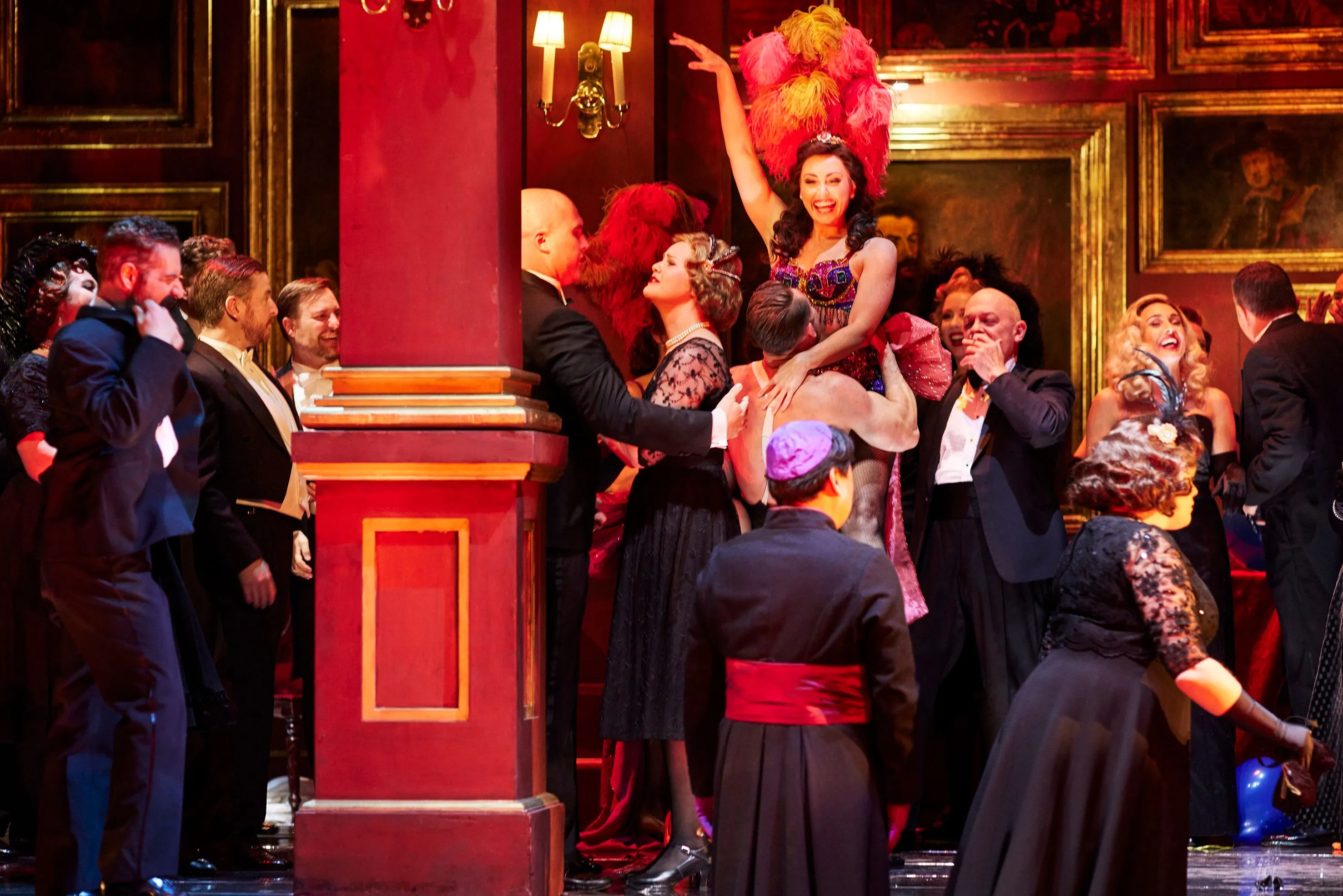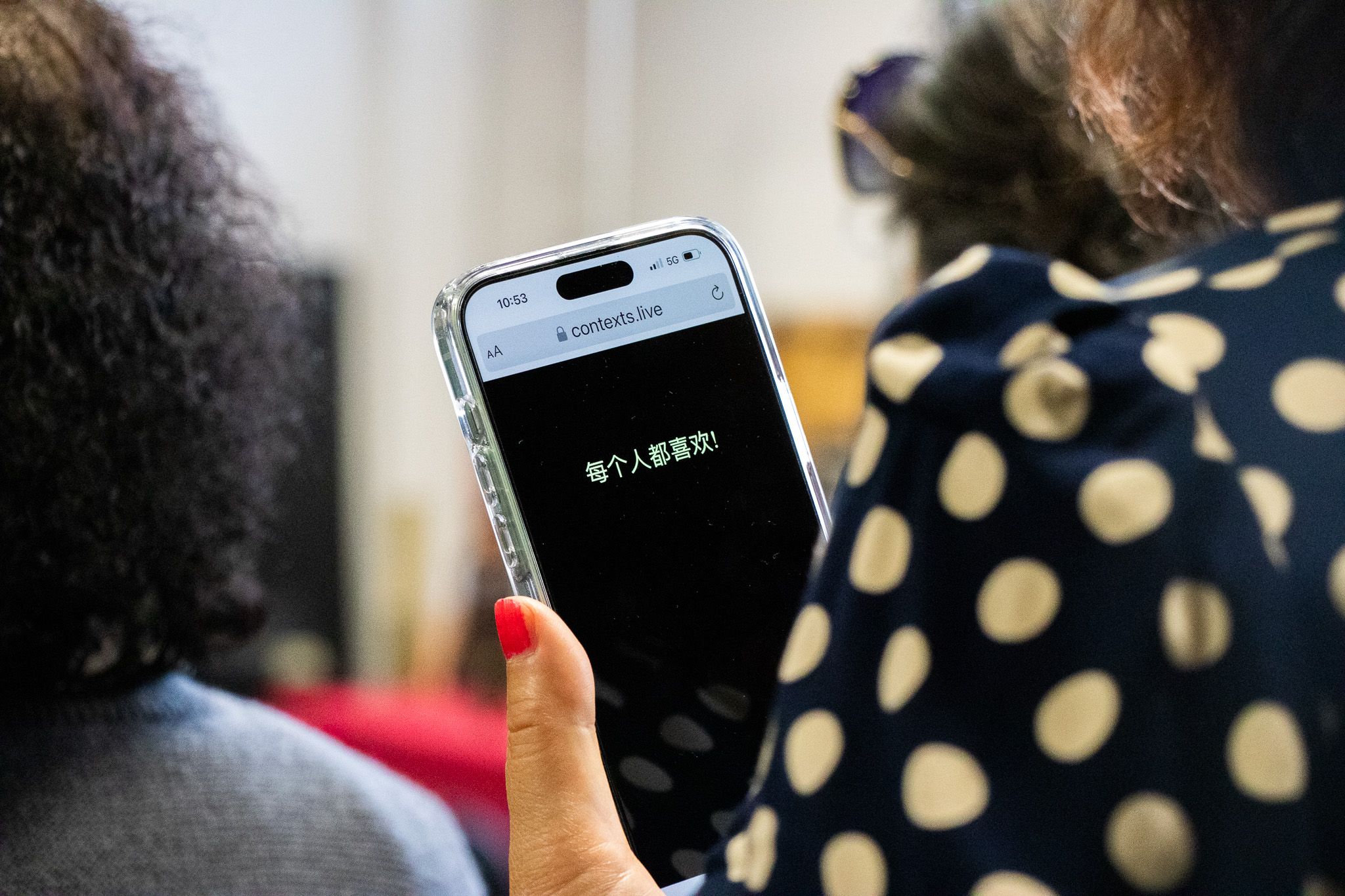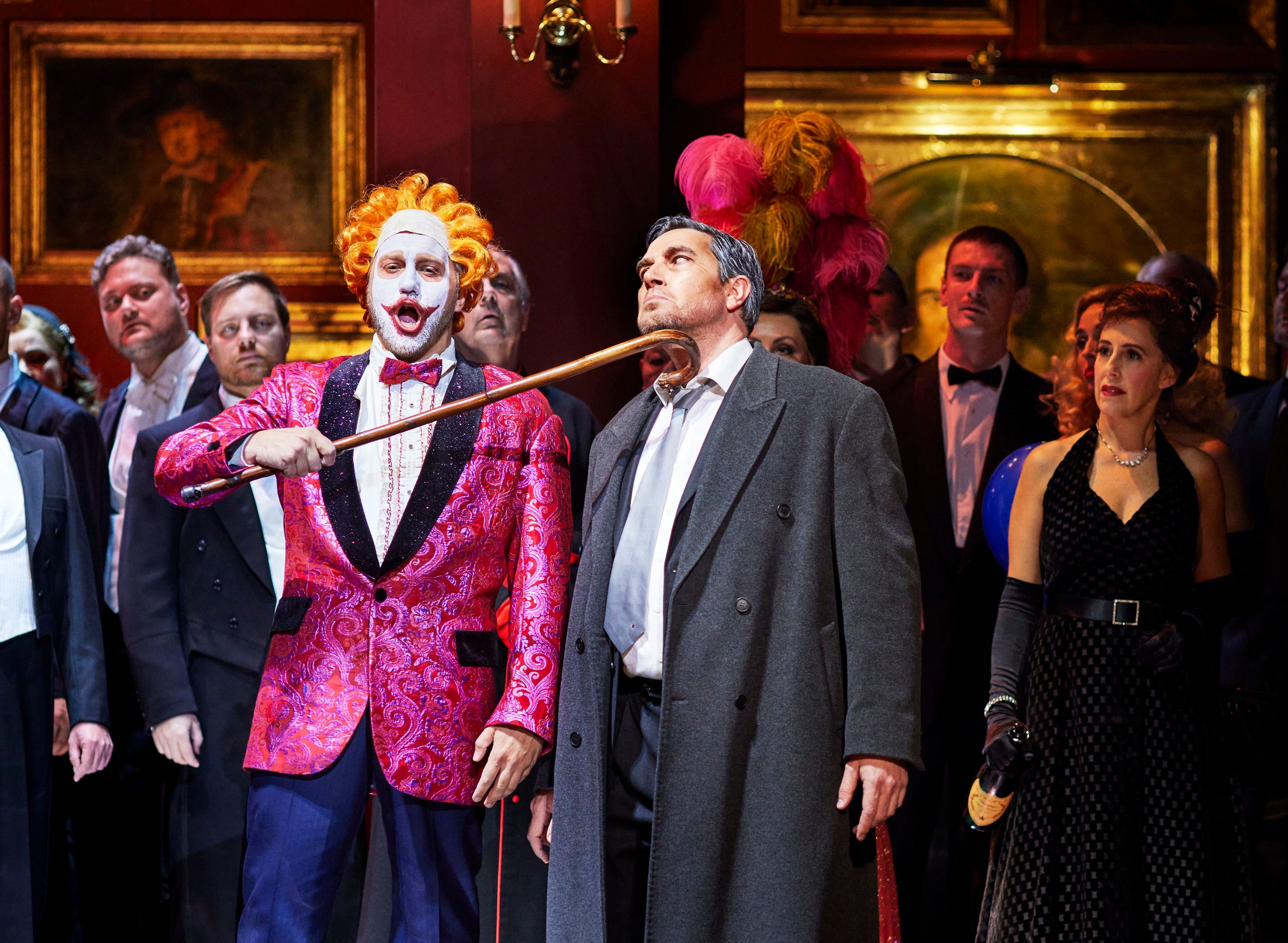Breaking The Language Barrier
One of the oldest artforms is embracing groundbreaking technology to shed negative preconceptions in Aotearoa.
Written by

When you think opera - traditionally, it hasn't always screamed 'accessibility'.
Just by saying the word, most people have already decided whether they love it or hate it, often before even actually experiencing it.
The long-running artform has had to deal with a perception – rightly or wrongly – as something that only appeals to the high-end, "cultured" types of society.
Brad Cohen, General Director of NZ Opera responds to The Big Idea "In our experience, the people who ‘hate’ opera, hate it because they think it’s just people warbling away in a foreign language - they can’t understand what they’re hearing.
"But actually - and this is the core of our mission at NZ Opera - opera at its heart is just the human voice, singing stories."
Many moves have been made to tear down the barriers of accessibility like commissioned operas with a more contemporary feel and this year, the addition of real-time translation.

This month's Auckland season of Verdi’s iconic Rigoletto (19, 21, 25 September)- performed with Auckland Philharmonia and the NZ Opera Chorus - will see real-time translations of the sung Italian offered in English, Braille, and for the first time, Simplified Chinese straight to their mobiles and other personal devices.
After developing and launching this major step with tech company contexts.live, NZ Opera's audience members will now be able to receive real-time Simplified Chinese translations directly to their personal devices by scanning a QR code.
NZ Opera’s Participation Manager, Frances Moore explains to The Big Idea how the concept has taken off.
"One driver was our work in creating Braille subtitles for our blind/low vision community during our recent season of Le comte Ory. It became clear that this same technology could be used to create different points of access, especially for those where English is not a first language.
"Opera stories are not known for their clarity at the best of times, so having subtitles in your own language makes a huge difference to being able to follow the story and enjoy the opera.
"While this increase in access is a big undertaking, it is a joyful privilege to connect with our communities and to learn more about the different requirements which might make our audience feel welcome.
"While we will only be increasing such points of access, we’re mindful that as an organisation we also need to appropriately hold and maintain the new connections and relationships that come from such outreach. Language is a taonga, and the processes behind translation and community outreach should be specific to each community’s needs."
With its initial debut out of the way, the response has been positive, and most importantly, considered user-friendly.
Moore details that the QR code "takes (audience members) directly to a webpage where the subtitles are automatically generated and will update in real-time, just as the English surtitles on our screens above the stage are. People can use their smartphones or tablets, and the design of the webpage is purposefully black with an off-white text, both for ease of reading, but also so as not to disturb surrounding audience members.

"So far, our audiences have been excited about this increase in access – as have we!
"Our last opera was a comedy and one blind patron reported that being able to read, through his personal Braille-reader, the same joke the audience around him were laughing at, immediately made him feel included and connected in the shared experience of a live event – it doesn’t get much better than that!"
While this latest step is the turn of the Chinese-speaking community to be made to feel more welcomed - there will be Chinese-speaking staff in the theatre to help patrons use the new technology for the first time to enjoy Rigoletto - NZ Opera has further plans in place.
Cohen adds "Subtitles, not only in English but in the languages of our audience - Simple Chinese, te reo, across the whole range - will unlock the power of the storytelling. Once our attendees understand that opera’s power is all about storytelling through song, the specific meaning of the storytelling becomes incredibly important.
"There’s a reason fairytales spoken in Serbian have never taken off in the English-speaking world: because English audiences don’t understand the words. And it’s the same with opera. It’s all about the storytelling - but through song. That’s where opera's unique magic lies."